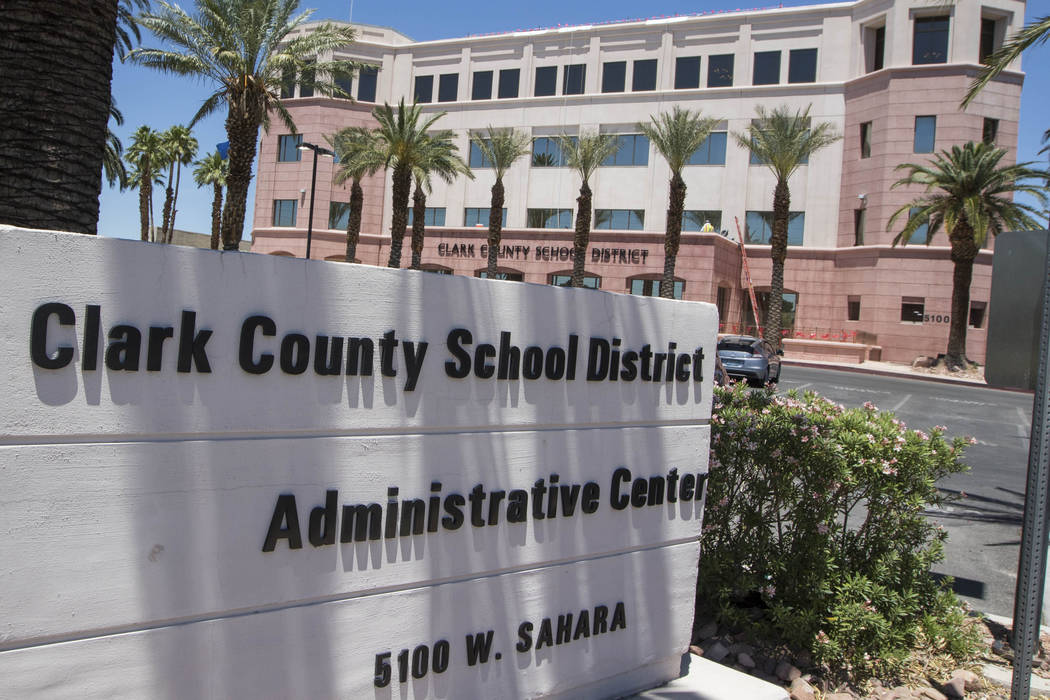Clark County special ed teachers see workload grow after budget cuts

Melissa Gardner gets to Knudson Middle School each day between 6 and 6:30 a.m. She leaves between 5:30 and 6 p.m. And she takes work home every weekend.
The Clark County School District special education teacher is, like many of her colleagues, overworked.
But now resource teachers like Gardner are facing an even heavier workload. After recent budget cuts, their caseloads will grow from a maximum of 22 students to 24.
Two extra cases may not seem like a lot, but teachers say it means more paperwork that takes them away from the classroom.
For each student in their caseload, special ed teachers must create an individualized education program — required by federal law — test them, monitor their progress and meet regularly with parents.
Resource educators, in particular, also teach classes of students with typically mild to moderate disabilities, many of whom mix in with the general education population.
“The additional paperwork, yeah it’s a concern and it’s going to load me down,” Gardner said. “But my bigger concern is how this is going to affect my ability to deliver instruction and services to kids. They need them and are required by law to get them.”
Although increasing the caseload does not directly impact class size, it can affect it. With fewer teachers needed in each school, it may be impossible to create another class as student numbers swell.
“There’s no conceivable way to bring down the resource class size number because we’re not going to get that additional teacher, because there aren’t any more bodies,” Gardner said.
The district says that the move reduced the deficit and put more licensed teachers in hard-to-fill special education teaching posts, as opposed to filling them with substitutes. There are still 130 special education vacancies, however.
Nevada Administrative code allows the district to increase caseloads by 10 percent without the approval of the state.
And district spokeswoman Kirsten Searer noted that many staff members will have fewer than 24 cases to manage.
“Not only is this new ratio in compliance with Nevada law, it is also in line with ratios of our peer school districts, such as the Washoe County School District,” she said in a statement.
Searer said the district looks forward to partnering with the community to secure adequate education funding in the 2019 legislative session.
But some resource teachers claim that their classes already are bigger than allowed by the state code — 12 students without an aide and 16 with one.
In the meantime, teachers like Melonie Sung — who says she already writes education plans and tutors students outside of contract hours — are resigning themselves to even more-crushing workloads.
“I have no idea that the people that are making the policy for CCSD, if they have any idea what the real classroom looks like,” Sung said.
Deanna McHenry, a special education facilitator who serves as a point-person for all special education needs at Eldorado High School, has just one question for the district: Where will it end?
“The district keeps pushing to see how far they can go and to see what push-back they’re going to get from it,” she said. “Then they push that line, and there’s an uproar, people get upset — and then the dust simmers down and everybody goes back and it becomes the norm.”
Contact Amelia Pak-Harvey at apak-harvey@reviewjournal.com or 702-383-4630. Follow @AmeliaPakHarvey on Twitter. On Education appears every other Saturday.













